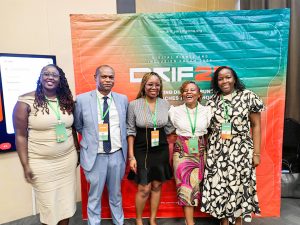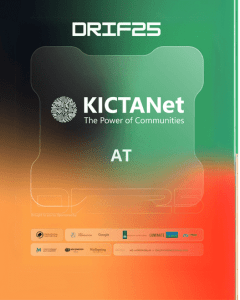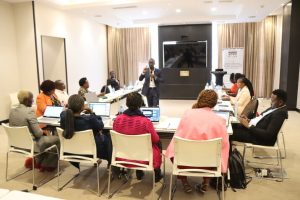The internet has become indispensable to modern life, fuelling global connectivity and innovation. However, the environmental impact of the digital infrastructure is significant, contributing to climate change through rising energy consumption and emissions.
The Environmental Impact of ICTs
The expansion of the internet and digital services has a substantial carbon footprint. The Information and Communications Technology (ICT) sector contributes about 5% of global greenhouse gas emissions from data centres to digital devices. This environmental cost stems from the growing demand for energy-intensive data processing, the hardware supporting it, and the continuous operation of networking infrastructure.
The need to make the internet more sustainable has never been more urgent, especially as developing regions strive to balance technological growth with environmental responsibility. One emerging solution highlighted in a presentation at the East Africa IGF is using solar-powered routers and green technology to drive digital inclusion while addressing climate concerns.
Solar-powered Routers and Sustainable Connectivity
Solar-powered routers are gaining attention in Uganda as a solution to reduce the carbon footprint of internet infrastructure. In a presentation, engineer Victor Turyahebwa explained that these devices utilise renewable solar energy, offering a greener alternative to traditional routers that rely on fossil fuel electricity. Solar-powered routers are also intended to bridge the digital divide by providing internet access to remote and rural areas where electricity is unavailable or unreliable. This technology aligns with the growing recognition that green innovations must be accessible to people in rural and low-income areas.
Challenges and Opportunities in Greening the Internet
While solar-powered routers represent an important advancement, they are part of a broader effort to reduce the environmental impact of the ICT sector. Data centres, for instance, consume significant energy, and there is increasing recognition that renewable energy must be a priority in their operation.
For marginalised groups, including persons with disabilities, the environmental crisis exacerbates the effects of pre-existing vulnerabilities. Communities with fewer resources are often most affected by environmental degradation, yet they also have the least access to technological solutions that could help mitigate these. Persons with disabilities, particularly those living in rural areas, often face barriers to accessing new technologies. Integrating accessibility into green tech solutions, such as making solar-powered routers more user-friendly for people with different abilities, can help ensure that these technologies reach all segments of society. One proposal from KICTANet during the session was that disability-specific data collection is vital for understanding the impact of climate technologies on these communities and ensuring that no one is left behind in the shift toward sustainable innovation.
Collective Responsibility
During a panel on the Green Tech Revolution: Multistakeholderism for Sustainable Climate Action in East Africa, a key takeaway was that no single entity can accomplish the move towards a greener internet. It requires collective responsibility from governments, the private sector, and civil society. There were calls for young people to engage in climate-conscious innovation while promoting internet accessibility across Africa.
Furthermore, government policies should support local innovation in green technologies, particularly for marginalised communities, by providing subsidies and fostering inclusive partnerships. For example, rural and underserved areas, often at the frontlines of climate change, have untapped potential for green job creation, including in tech-based sectors. This calls for equitable distribution of green technologies, ensuring that all communities—not just affluent urban centres—benefit from sustainable solutions.
For people with disabilities, it is important that green technology is not only accessible but also responsive to their specific needs. Governments and organizations must intentionally integrate disability perspectives into their climate action plans.
![]()




